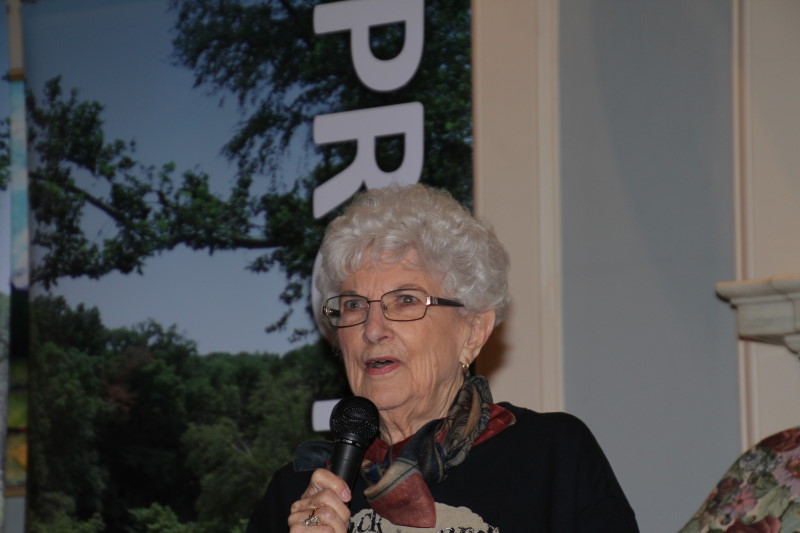
Agricultural News
"Black Sunday" Dust Storm Hit Oklahoma 80 Years Ago- April 14, 1935
Tue, 14 Apr 2015 19:50:19 CDT
 Eighty years ago today was Black Sunday. It's said that a radio reporter gave what proved to be the single worst dust storm to blow through the southern plains in the 1930's the name Black Sunday. One of the survivors of Black Sunday was Pauline Hodges. She was among about two dozen who were sharing their story at the Oklahoma State Capitol Tuesday as Conservation groups came together to commemorate the anniversary. Radio Oklahoma Network Farm Director Ron Hays interviewed Hodges about that unforgettable day. Click or tap on the LISTENBAR below to hear the full interview.
Eighty years ago today was Black Sunday. It's said that a radio reporter gave what proved to be the single worst dust storm to blow through the southern plains in the 1930's the name Black Sunday. One of the survivors of Black Sunday was Pauline Hodges. She was among about two dozen who were sharing their story at the Oklahoma State Capitol Tuesday as Conservation groups came together to commemorate the anniversary. Radio Oklahoma Network Farm Director Ron Hays interviewed Hodges about that unforgettable day. Click or tap on the LISTENBAR below to hear the full interview.
As a little girl living in the Panhandle, she remembers April 14, 1935 was a different kind of day. She was almost six years old and she recalls there were dust storms every day, but none like that "black cloud" that came in that Sunday. She remembers how everything turned totally dark.
"You couldn't see anything," Hodges said. "It was the only day that I remember it was ever that bad."
In remembering Black Sunday, she said her father was convinced the dust storms were caused by plowing of the land- including pasture land that should not have been broken into cropland. Two months after Black Sunday, Hodges said they lost their farm to bank foreclosure. They lost their farm, their house, all of the machinery and they had to move.
"It changed us forever though, in what we did, how we felt and how we had to live and our attitudes," Hodges said. "It probably made better people out of us, but we didn't think that at the time."
Her family moved and her father joined the Work Progress Administration. The WPA was President Roosevelt's most famous New Deal program because it affected so many people's lives in employing more than 8.5 million people. WPA employees built bridges, roads, public buildings, public parks and airports.
The dirt that was blown into the air on that Black Sunday was carried all the way to the east coast and was seen by lawmakers in Washington. At least partially due to Black Sunday- Congress acted later that month on April 27, 1935 as the the federal government created the Soil Conservation Service (SCS) as a permanent agency in the U.S. Department of Agriculture. When Hodges' father returned to agriculture as a tenant farmer, she said he educated himself through the conservation programs, from county extension agents and he followed those recommended conservation practices.
Now, 80 years later, Hodges said you can see all of the changes in conservation that have been made through no-till farming, to the construction of terraces and dams that prevent runoff, but she believes more needs to be done with increasing demand and competition for water resources.
Lots has been written about Black Sunday- a good overview comes from the National Weather Service which is available here.
WebReadyTM Powered by WireReady® NSI
Top Agricultural News
More Headlines...




















